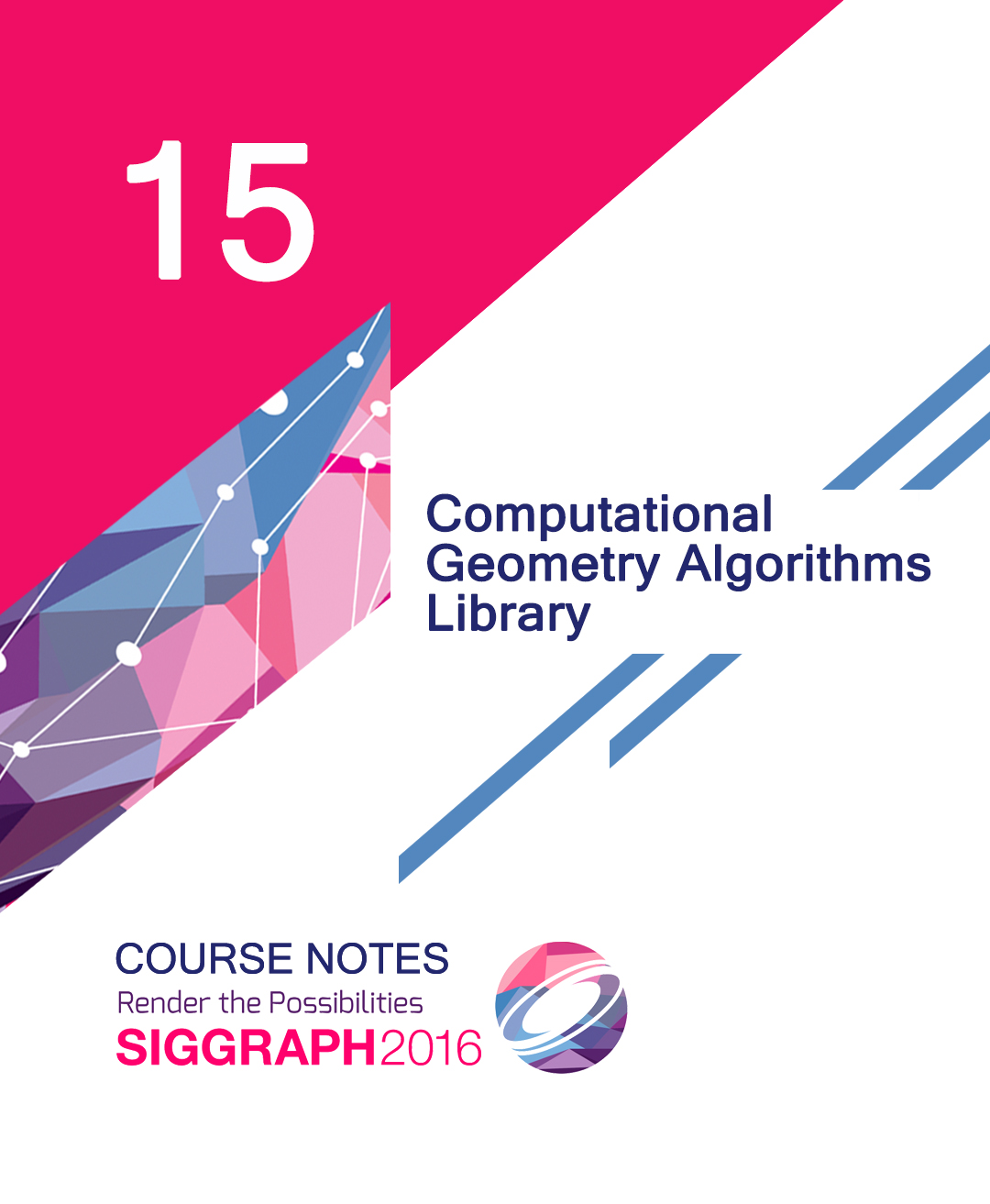“Computational Geometry Algorithms Library” by Fabri and Rineau
Conference:
Type(s):
Entry Number: 15
Title:
- Computational Geometry Algorithms Library
Course Organizer(s):
Presenter(s)/Author(s):
Abstract:
Prerequisites
Knowledge of C++ and generic programming. Knowledge of algorithms and data structures relating to the field of computational geometry is helpful but not strictly required.
Level
Intermediate
Who Should Attend
Primarily software developers in industry and academia who want to leverage existing geometric software components for their applications and experiments. The demos featured throughout the course are appropriate for non-experts (non-developers) who are interested in the class of problems tackled by CGAL algorithms.
Description
The CGAL C++ library offers geometric data structures and algorithms that are reliable, efficient, easy to use, and easy to integrate in existing software. The use of de facto standard libraries like CGAL increases productivity, because it allows software developers to focus on the application layer.
This course provides an overview of CGAL geometric algorithms and data structures. The introductory lecture presents the objectives and scope of the CGAL open-source project. The three next lectures cover SIGGRAPH topics:
• CGAL for point-set processing, including denoising, outlier removal, smoothing, resampling, curvature estimation, shape detection, triangulation, and surface reconstruction.
• CGAL for polygon-mesh processing, including Boolean operations, deformation, skeletonization, segmentation, hole filling, isotropic remeshing, and simplification.
• CGAL for mesh generation, including surface and volume mesh generation, from either 3D images, implicit functions, or surface meshes.
The concluding lecture details the infrastructure and processes of the CGAL project, in order to efficiently communicate with CGAL users and developers. It also explains the steps required to become a contributor and a member of the project community.
The lectures alternate live demos, short presentations of the API, short code excerpts, and performance figures of the algorithms. The source code of the demos is available from the project web site, and the demos are part of the distribution of CGAL.




